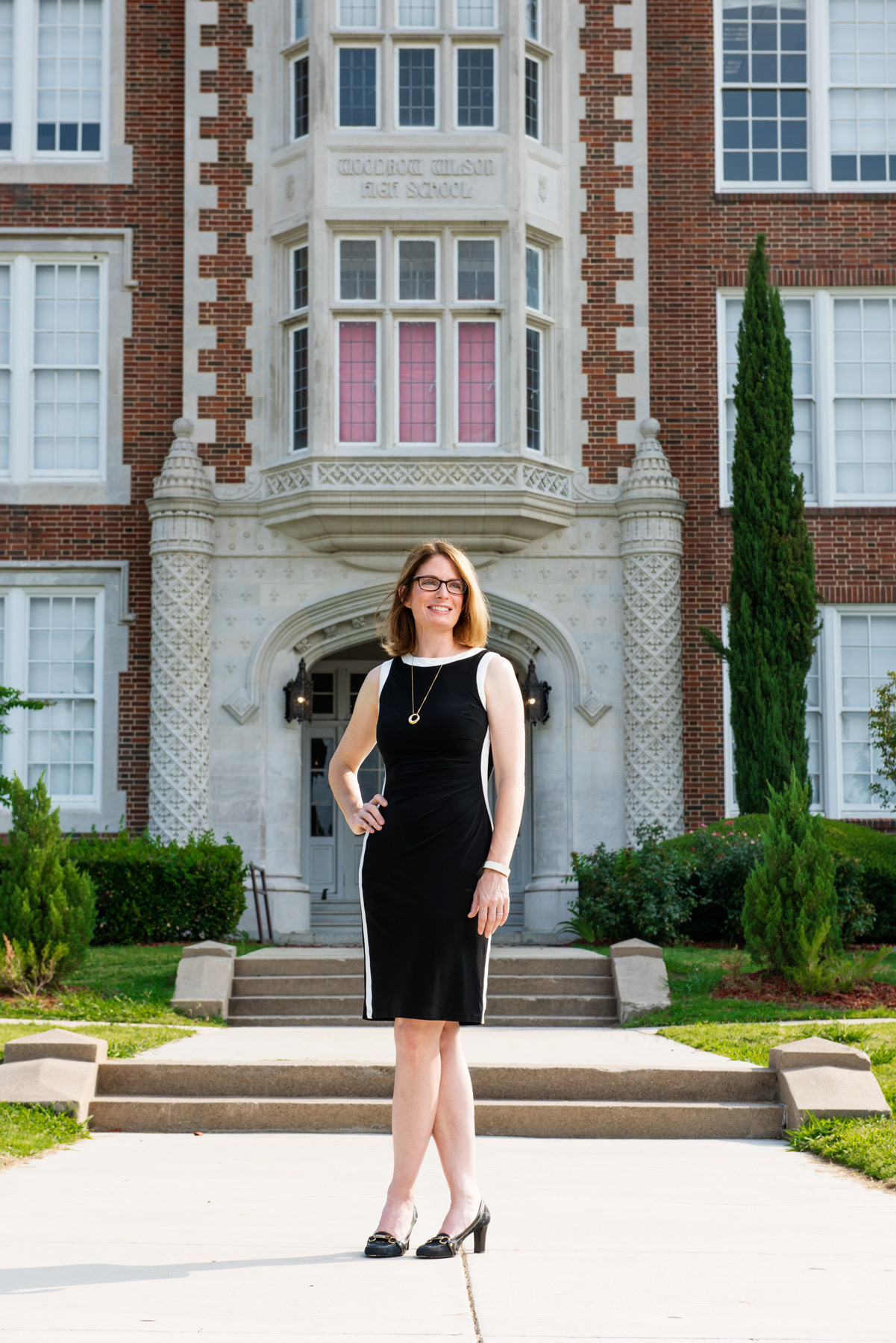
Lara Johnson pulled her Toyota Highlander off Forest Lane one Thursday afternoon. Why she chose that moment, just after replacing her driver’s license and just before picking up her two children, she couldn’t say. What she was about to do was something she had thought about for years.
In a strip-mall parking lot, she got out her phone and typed a name into Whitepages, just as she’d done dozens of times. Only this time, she actually dialed the number. The telephone rang. And rang again. Three, four, five rings. No one answered, and she felt relieved. Then someone picked up. “Hello?”
“I’m looking for Pat Faherty,” she said.
“This is Pat Faherty.”
“This is Lara Johnson. From Woodrow Wilson High School, class of 1993. I’ve been thinking about you a lot.” Lara fought to hold her voice steady. “Yeah,” Lara continued, “I’ve really been meaning to call and say thank you.”
When Lara hung up, she sat quietly for several minutes. Then she steered her SUV back onto the tree-lined streets of North Dallas. She pulled into the entrance of The Lamplighter School, one of the most exclusive and expensive private elementary schools in Dallas. She traveled around a circular drive, past a wooden windmill and large barn, through the shade of large oak trees.
She took her place in the carpool line, her Toyota one of the more modest cars in a line of shiny Lexuses and BMWs. She spotted her two children, toting their Lands’ End backpacks, smiling as they walked toward her car.
It was another day in a life that still surprises Lara, the way it’s surprising when you’ve fallen asleep somewhere and it takes a moment to remember how you got there. She grew up in a different world, one of wanting things and not having them.
Most people don’t travel from that world to this one. And if it weren’t for the woman she’d just spoken to, in a call she’d put off for nearly two decades, Lara might not have been able to leave that world, either. Even now, all these years later, she sometimes felt like an immigrant from a faraway land, struggling to adapt to life in a foreign place.
Lara grew up in Dallas. Her mother was a heroin addict who waited tables and cleaned office buildings at night. Her father was an alcoholic. He cleaned pools. Her family had enough money to cover the basics, and that was about it. On the rare occasions when they went out to dinner, they always ordered the cheapest item on the menu—and only water, never sodas. The family’s possessions disappeared with some frequency: the television, the VCR, Christmas presents, whatever could be converted to cash.
One evening after drinking too many Coors Lights, her father pistol-whipped her mother. Two-year-old Lara and her sister spent the night in an emergency shelter. Her parents divorced, and she stayed with her mother.
When her mother went in search of heroin, she took Lara along. Her mother would tell her to get down on the car’s floorboard and wait. Lara spent hours staring up at trees and streetlights.
Lara went with her mother on shoplifting trips. Sears was a favorite stop, for Craftsman tools that were easily pawned. Once, when Lara was about 6, an employee chased them into the parking lot, shouting for them never to return. His eyes lingered on Lara, in a way she understood to mean he was shouting at her, too.
It wasn’t that her mother didn’t take care of her. On the contrary, Lara felt her mother’s love intensely. They slept in the same bed, an interlocking tangle of limbs and soft skin. But she was not the center of her mother’s world. That place was ruled by a dark need that, no matter how many times Lara hid on the floorboard, could never be fully satisfied.
The drug use made her mother sick. She got hepatitis C. She lost an eye. She once hit an artery while shooting heroin, and her left thumb turned black; she nearly lost that, too. Lara went with her to doctors’ appointments and hospital visits. She felt the sting of judgment. She could tell the doctors, authoritative in their white coats, looked down on her mother. Her mother often felt as if they wanted to punish her rather than help her.
There was one visit to Parkland Memorial Hospital that felt different. Her mother’s drug use had led to a fungal infection in her brain. On the eve of surgery, a young Parkland doctor arrived in her room. The doctor spoke to her mother as if she were his equal. He sat patiently and answered all her questions. Lara studied him. He made them both feel as if everything were going to be okay. She would never forget that.
Head here to finish the rest of this story, which ran as a feature in the October issue of D Magazine.




